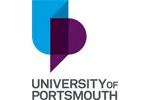We're moving! This site will be relocating to goingto.university in 2026. Please update your bookmarks to the new address.


the United Kingdom
University of Portsmouth| The award | How you will study | Study duration | Course start | Domestic course fees | International course fees |
|---|---|---|---|---|---|
| BSc (Hons) | Full-time, Sandwich | 3 - 4 years | September | - | - |
Overview
Supply chain management contributes to every aspect of business, not to mention everyday life.
Recent events like Covid and Brexit have shown how important supply chains are. Ensuring the right products are in the right place at the right time — and at the right cost — is vital to life as we know it. So is ensuring those supply chains are sustainable safe for the environment.
On this degree you'll investigate risk and strategic management, logistics management, and learn how to procure goods and manage supply lines.
You'll use professional industry software, systems and tools to help you explore the ethics and sustainability of global supply chains.
With a focus on global procurement and the sourcing and purchasing of goods, you’ll graduate with more than just an understanding of logistics and the movement of goods. You’ll build your specialist knowledge and understanding of business in general so that you graduate with a set of management and specific skills that are in demand in the workplace.
You can boost your employability and apply you degree knowledge with a paid industry placement year before or after your third year. As Portsmouth is a vital supply chain hub there are great local opportunities to do a placement year with companies like IBM and Boeing, as well as other roles across the UK.
Course highlights
Course highlights
Accreditation
We have partnered with the CMI so that you can gain a value-added professional qualification alongside your degree. Students on our BSc Business and Supply Chain Management can be awarded a CMI Level 5 Diploma in Management and Leadership upon successful completion of their degree programme. Upon joining their degree course, students become members of the CMI and can access a range of benefits, resources and events to support their professional development.
The University of Portsmouth has earned business accreditation from the AACSB in recognition of the outstanding quality of its business and management education. Less than six percent of the world's schools offering business degree programs hold AACSB business accreditation.
Careers and opportunities
Supply chain management is needed everywhere and there's a great shortage of supply chain skills in the UK. You could work in retail, healthcare, manufacturing, shipping and freight, charities or the public sector - the choice is yours.
Pay is good; the average salary for all UK procurement and supply chain professionals is £49,743 (CIPS Salary Guide 2022) and there are many varied routes for career progression, including working overseas.
Roles you can go on to with this degree include:
Previous graduates have gone on to work for companies such as:
Alternatively you could go on to specialist postgraduate study, or set up your own business with the help and support of the University.
Work placement year
You can boost your employability by taking an optional paid placement after your second or third year.
Previous students have had placements in organisations such as:
Many of our students are offered a graduate job by their placement employer.
The average salary for a 12-month paid placement is £19,800 for students in the Faculty of Business and Law. It could be more or less than this amount depending on your placement. You'll only pay a very small percentage of your tuition fee for this year.
You could also set up your own business with support from us.
Below are some suggested courses at other providers that you may also be interested in:
Master of Laws in European and Comparative Law LLM, LLM
University of Malta Faculty of Laws
Find out moreData Science and Marketing Analytics Master
Erasmus School of Economics, Erasmus University Rotterdam
Find out moreResearch in Special Needs Education Master Degree
Faculty of Educational Sciences, University of Oslo
Find out moreConsider a Foundation or Pathway course at University of Portsmouth to prepare for your chosen course:
If you do not meet the entry requirements for this course then consider one of these courses from another institution:
There are 529 other courses listed from University of Portsmouth. A selection of these are displayed below:
Join the StudyLink email list and never miss a chance to turn your study abroad dreams into reality!

Find out more about studying in the United Kingdom